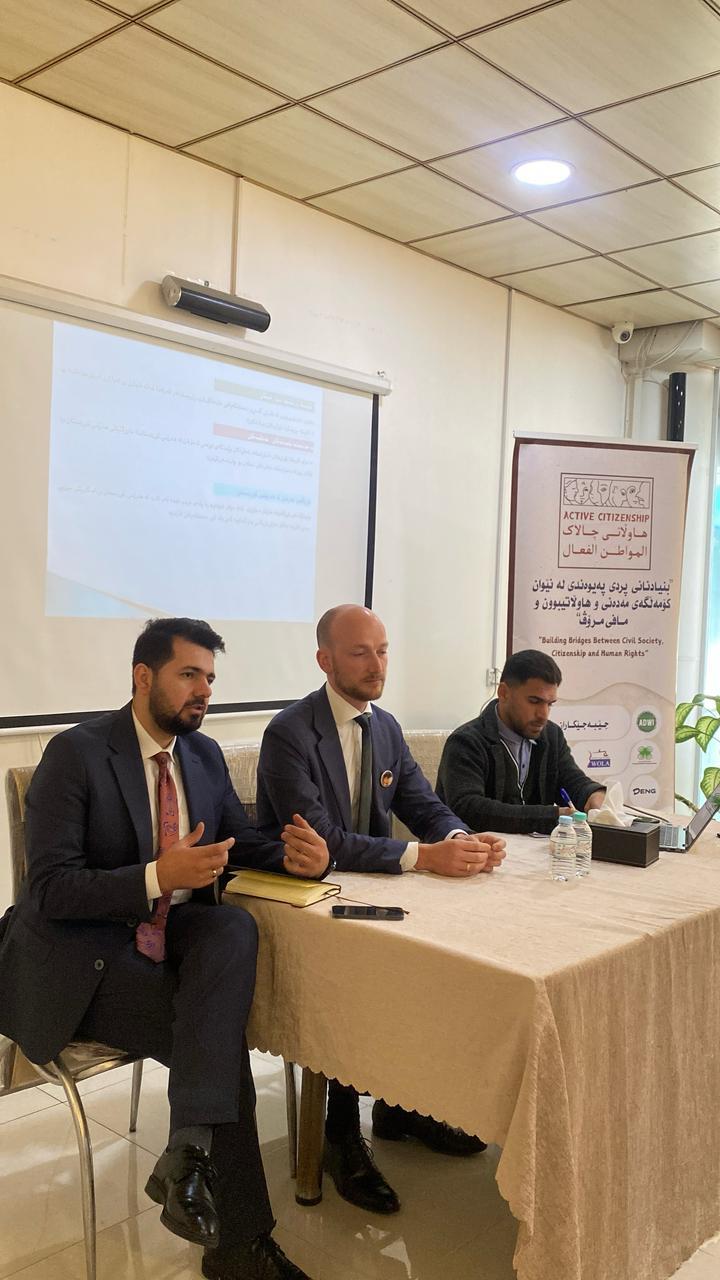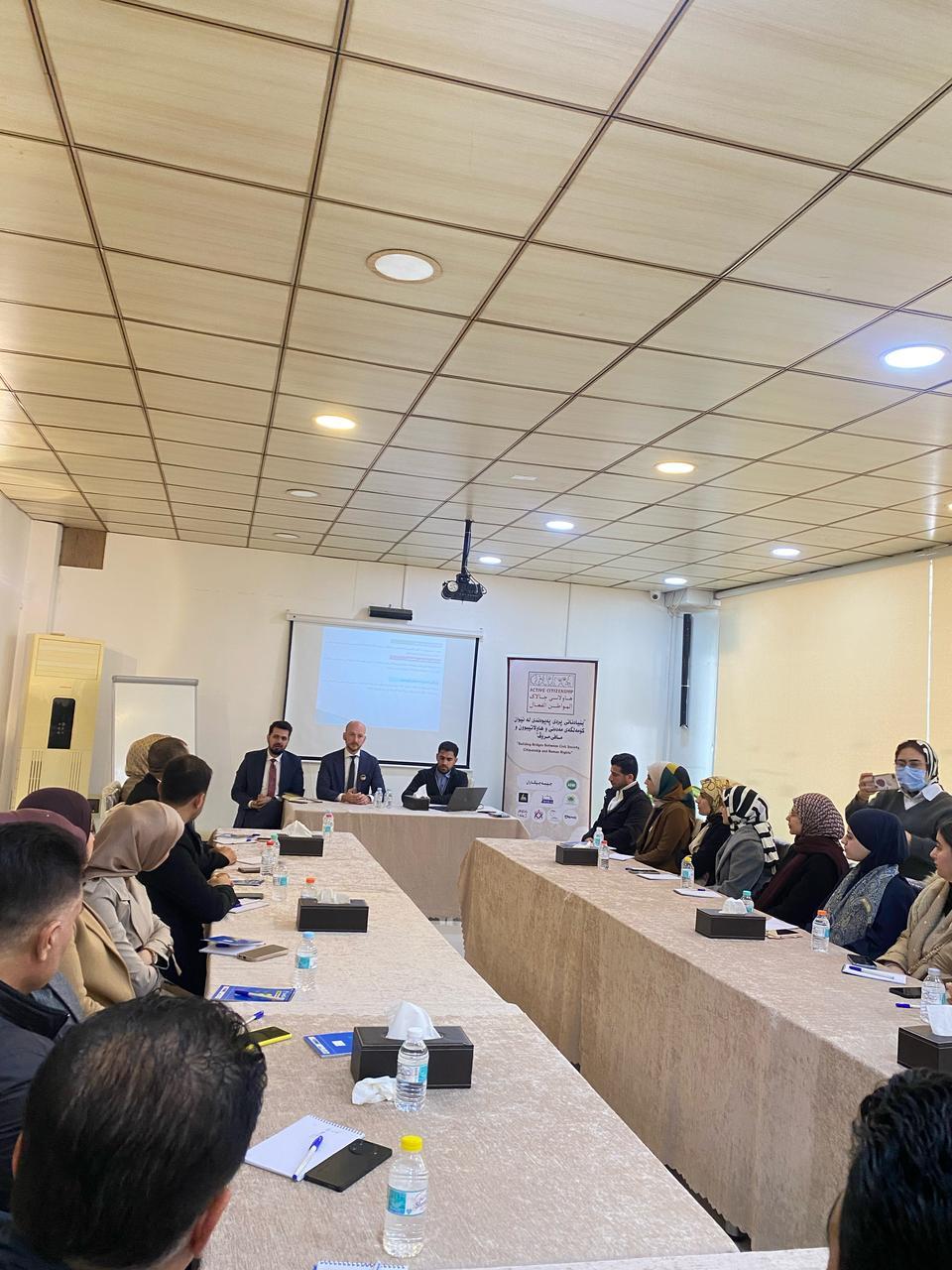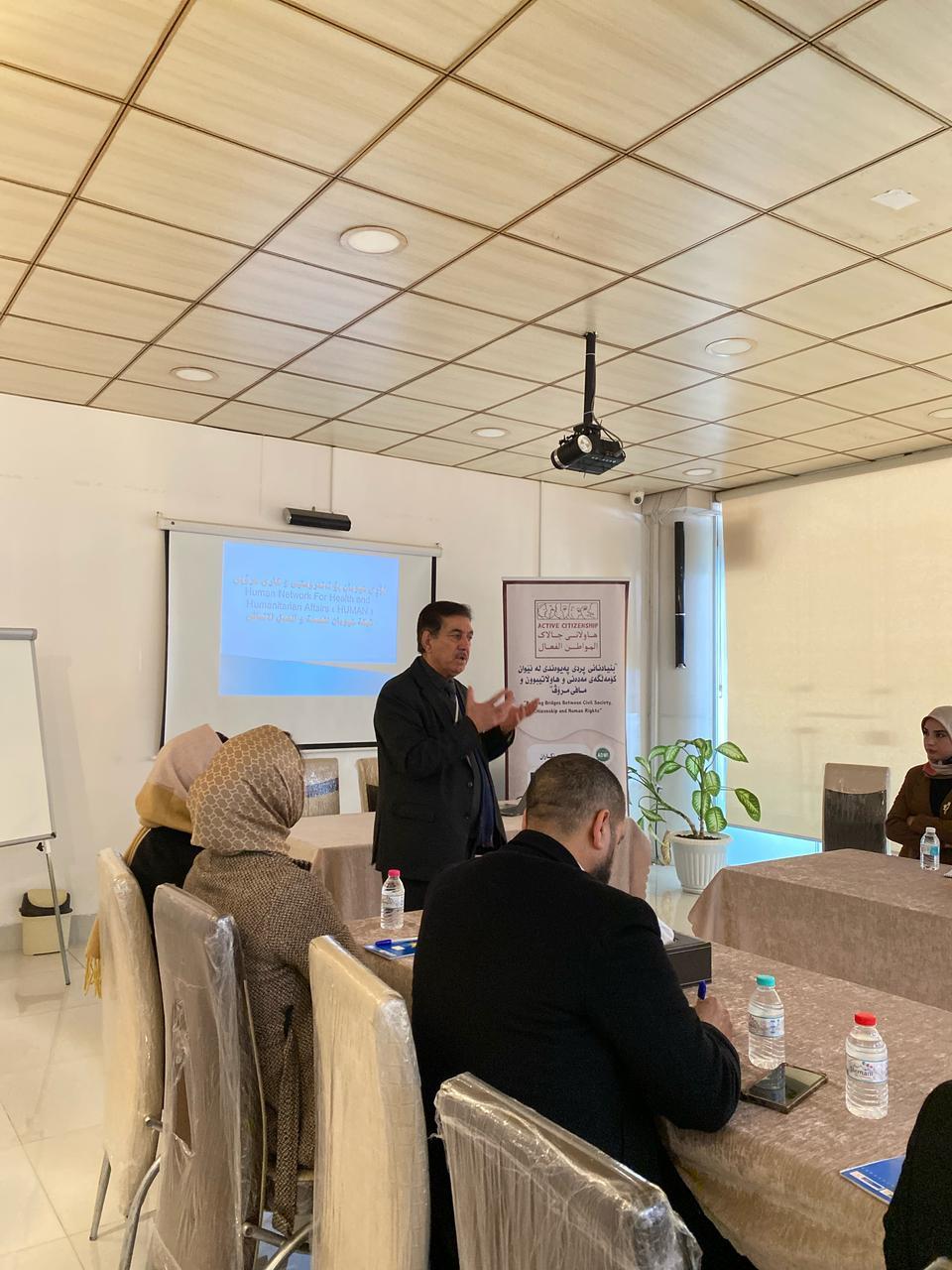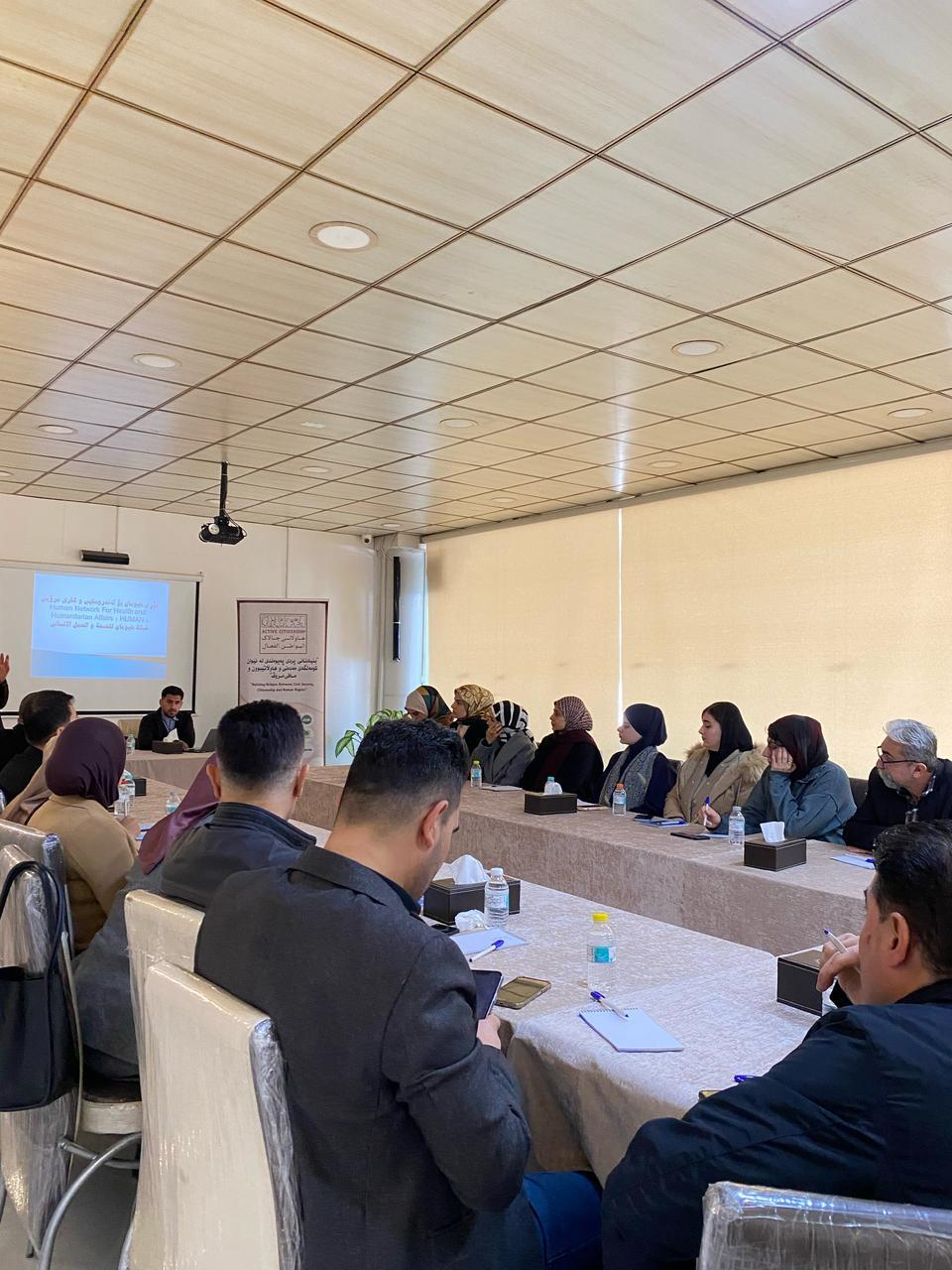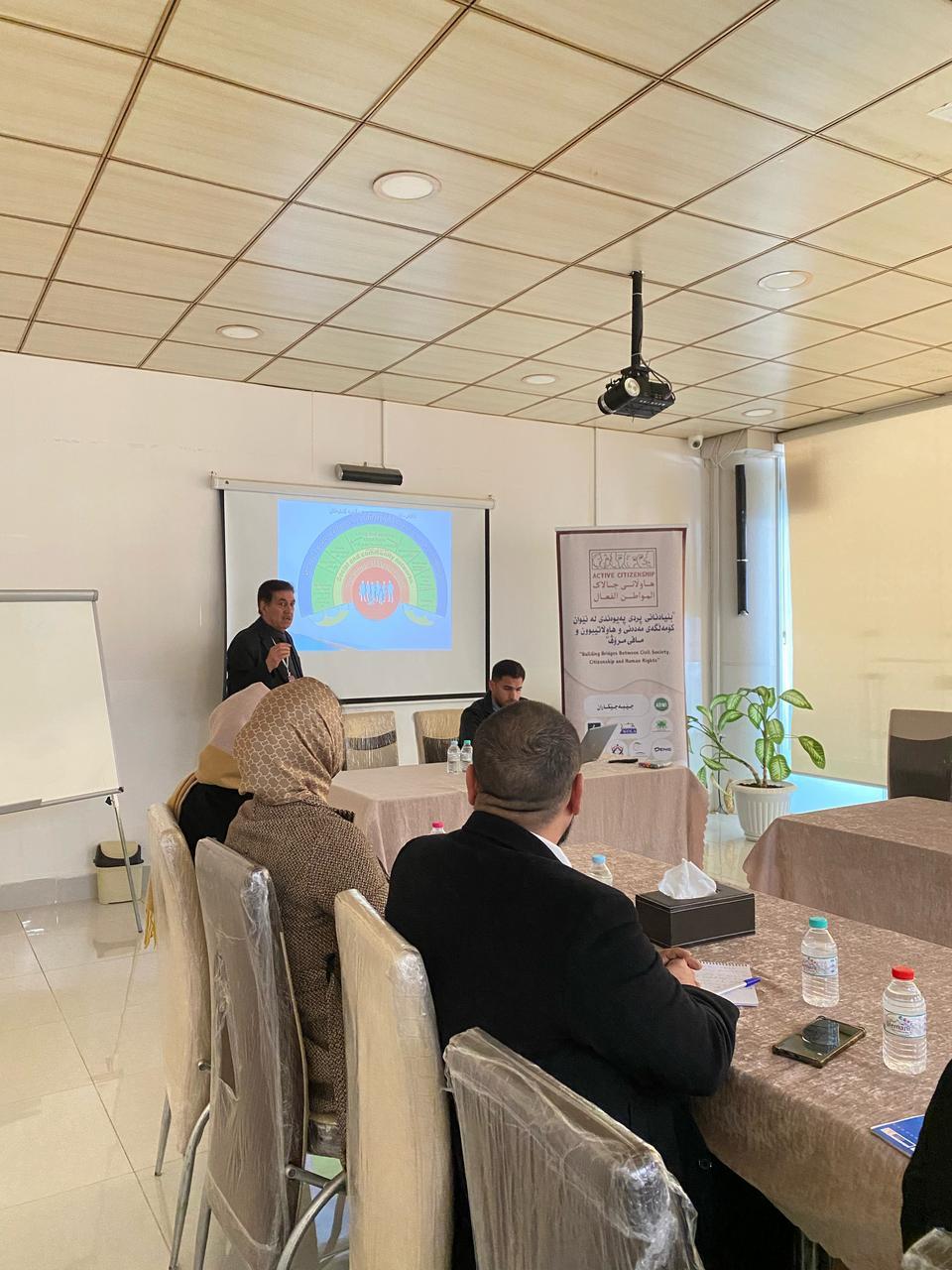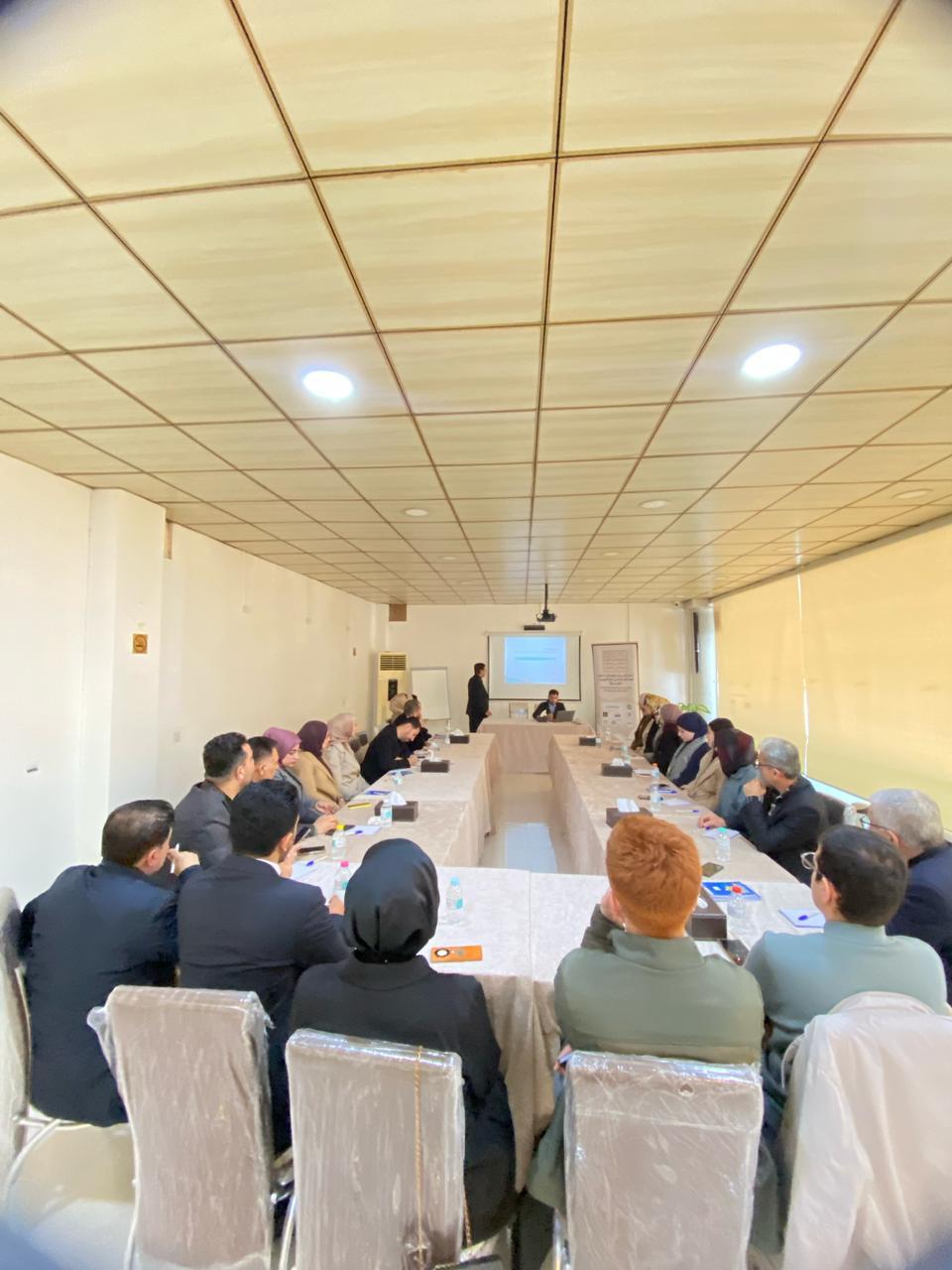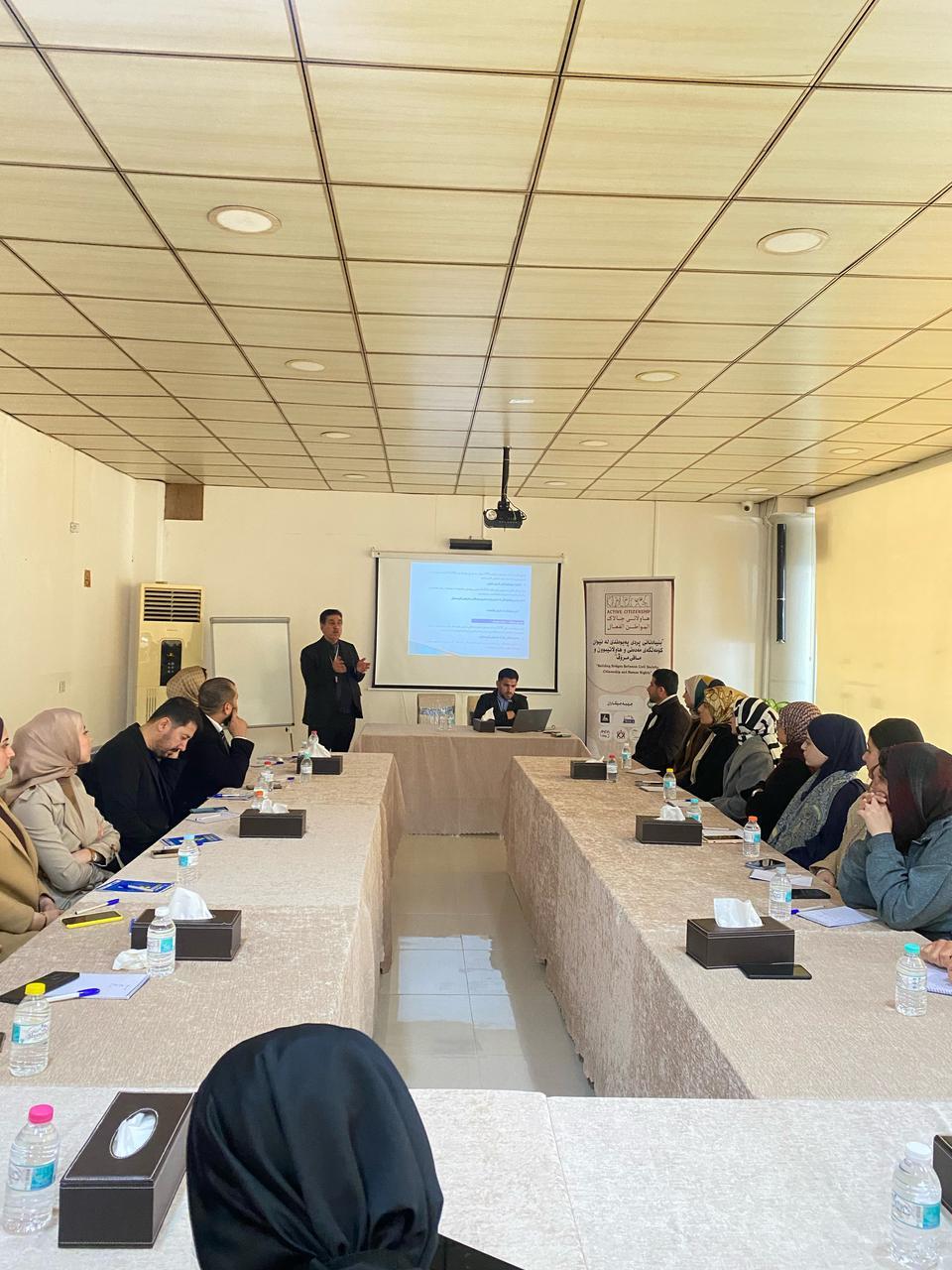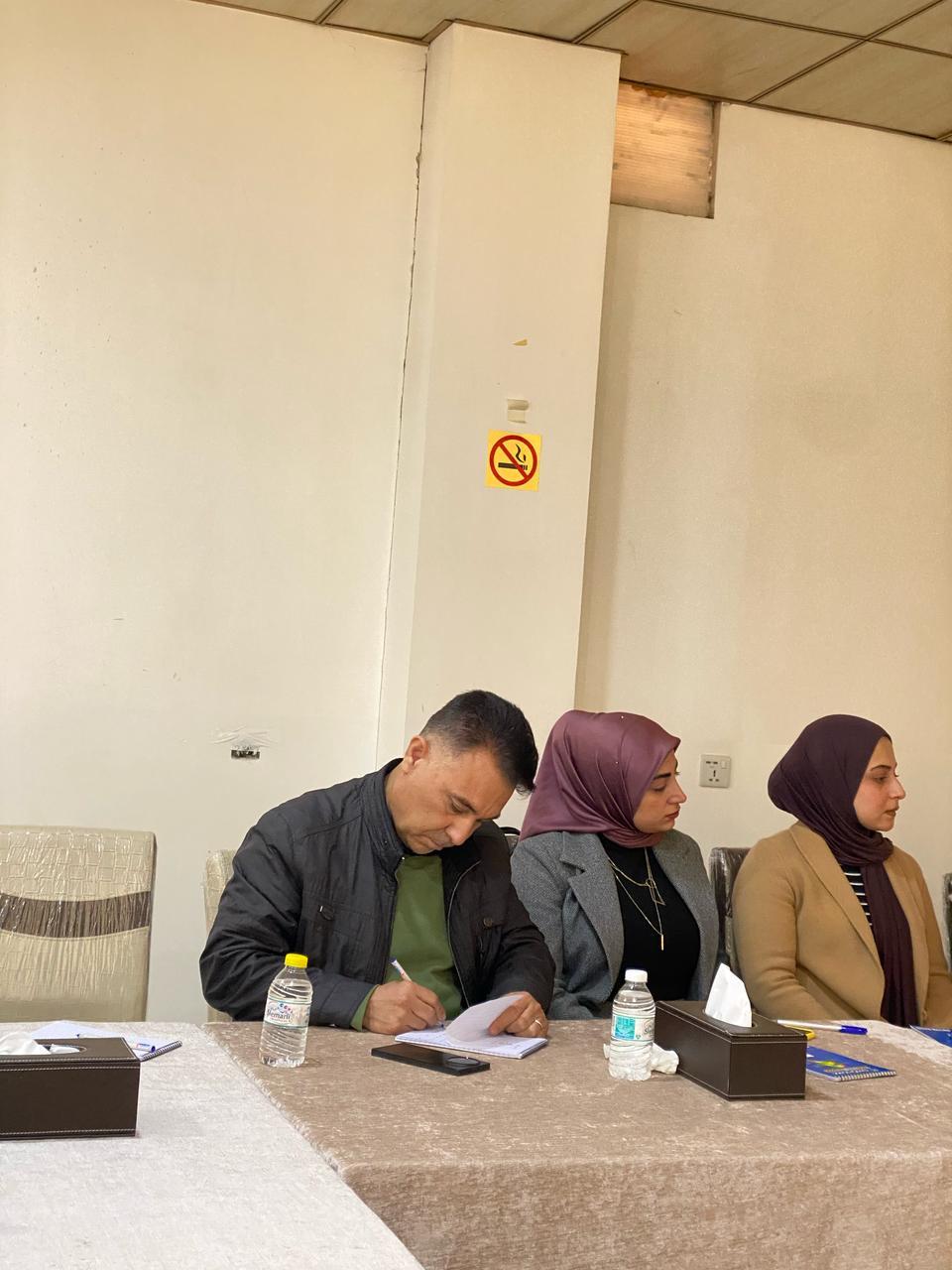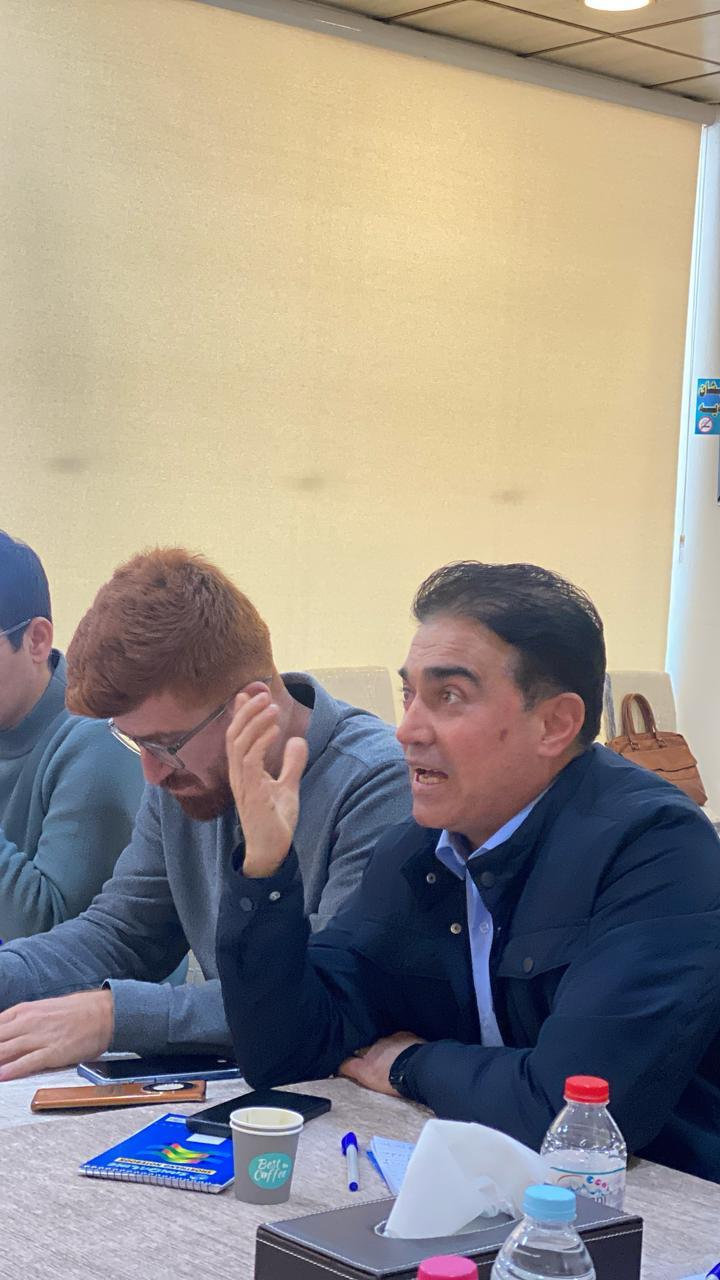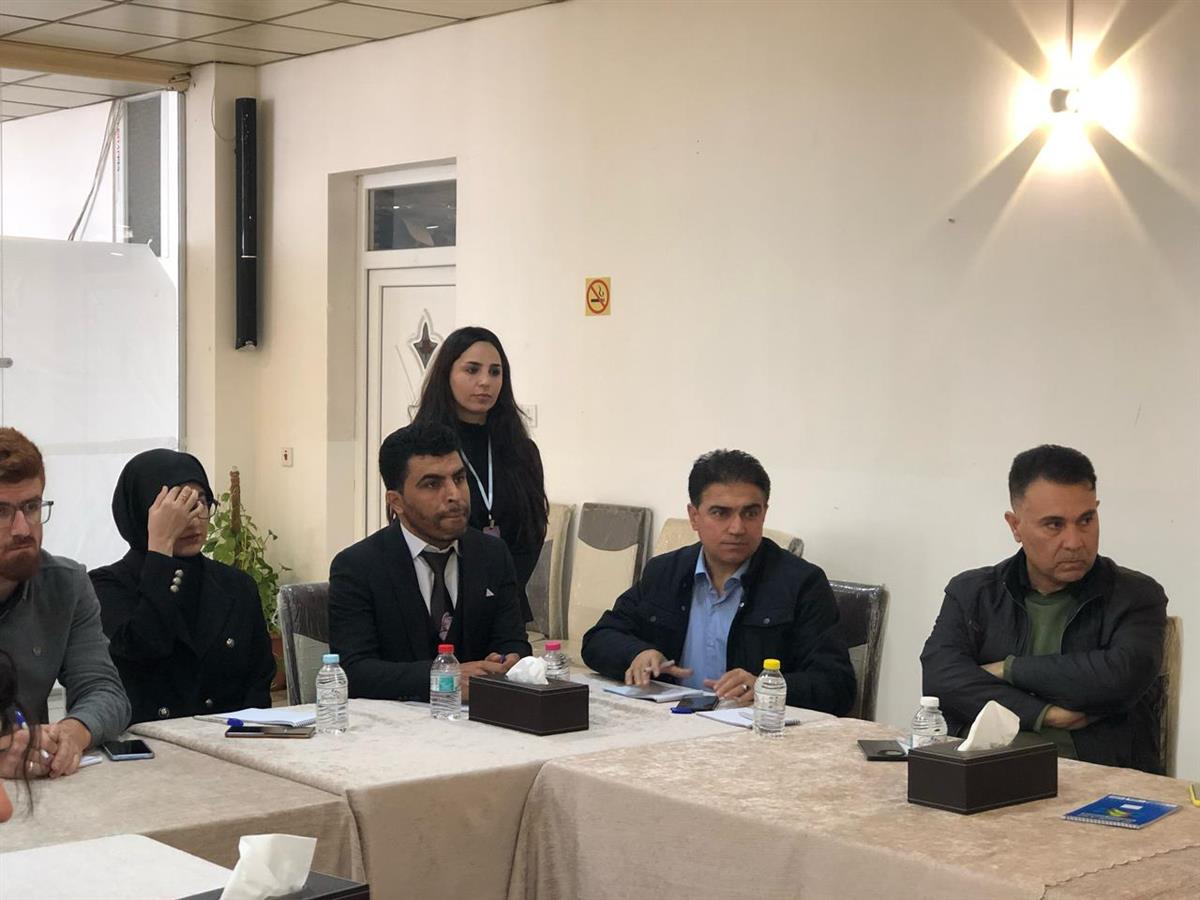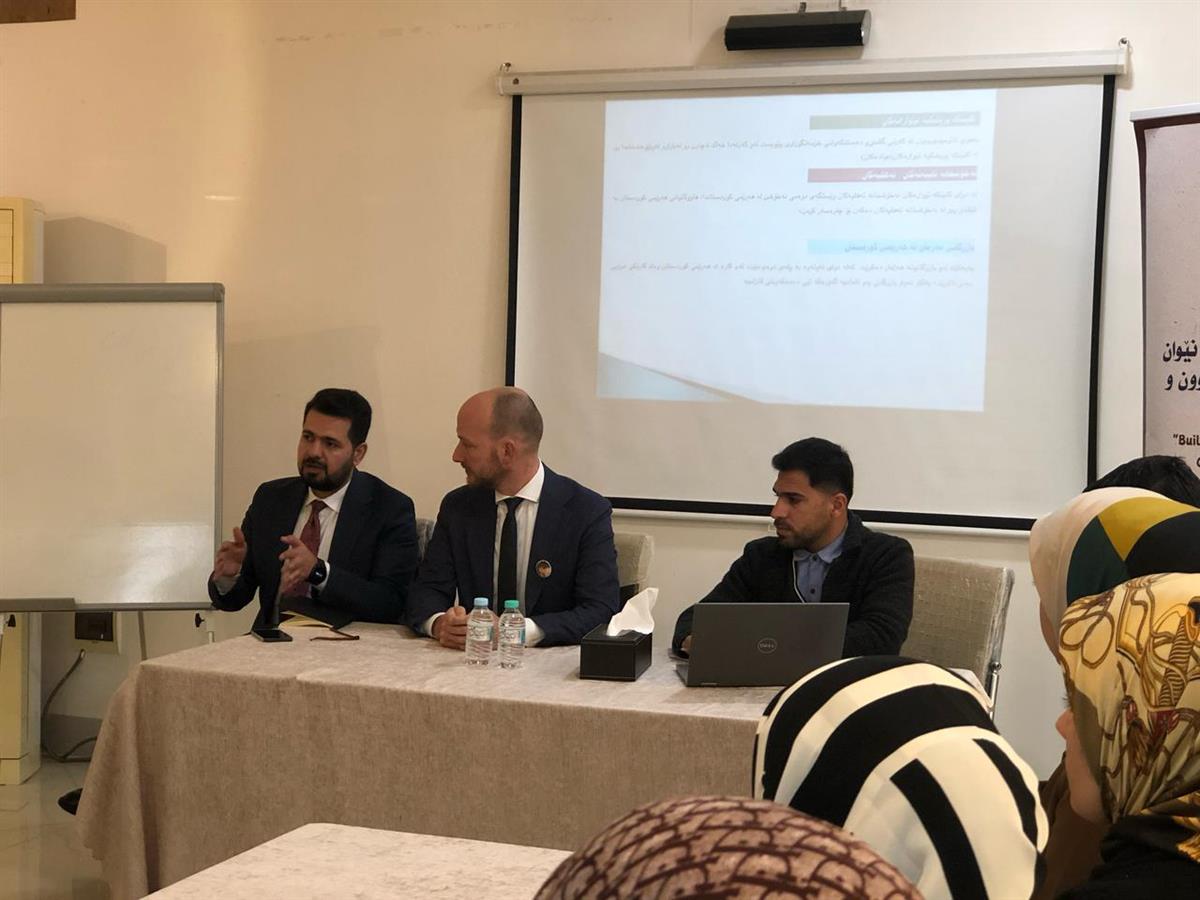General Meeting on the Health Situation in Halabja Governorate
2025-03-11
25-02-2025 --HALABJA GOVERNORATE
As part of ongoing efforts to improve the health sector in Halabja, a general meeting was held to discuss the health challenges facing residents. The meeting was attended by the Dutch Consul in the Kurdistan Region of Iraq, health officials, representatives of health organizations, as well as academics and university representatives.
Objectives of the Meeting:
Assessing the Health Situation – Discussing health challenges, including the impact of chemical weapons and current medical needs.
Enhancing Cooperation Among Stakeholders – Bringing together health officials, organizations, and universities to collaborate on improving healthcare services.
Developing Sustainable Strategies and Solutions – Proposing plans to improve health infrastructure and secure necessary funding.
Raising Health Awareness – Providing recommendations to strengthen health education and encourage academic research on health issues in the city.
Monitoring Governmental and Organizational Efforts – Reviewing past health initiatives and identifying next steps to ensure continued improvements.
Key Discussion Points:
Assessment of the Current Health Situation:
Reviewing available medical services and challenges in the health sector.
Discussing shortages of medicines and medical equipment.
Presenting statistics on chronic diseases and the ongoing effects of the chemical attack on residents.
Participation of Health Institutions and International Organizations:
Presenting reports on implemented health projects in the region.
Exploring ways to enhance cooperation between local and international health entities.
Reviewing government efforts to improve health infrastructure and provide financial support.
Academic and Research Contributions:
Presenting studies and research on the health situation in Halabja.
Discussing the need for further research on the environmental and health impacts of the chemical attack.
Proposing the establishment of specialized research centers to study health conditions in the city.
Proposed Recommendations and Solutions:
Strengthening health awareness programs on chronic diseases and prevention methods.
Developing sustainable plans to provide medicines and medical supplies.
Increasing the number of specialized medical personnel.
Advocating for additional government and international support to enhance the healthcare system in Halabja.
Supporting health efforts related to victims of the chemical attack.
Meeting Outcomes:
An agreement was reached to establish a follow-up committee to implement the proposed recommendations, with regular meetings to monitor progress in improving the health situation.
Participants' Reactions:
✅ Positive Aspects of the Meeting:
Welcoming the meeting as a crucial step in gathering key stakeholders.
Appreciating government and international efforts, particularly support for the Chemical Weapons Victims Hospital.
Emphasizing the importance of scientific research in finding sustainable solutions.
❌ Challenges Identified:
Shortages of medical resources and medicines.
Weak health infrastructure.
Insufficient international support compared to other affected regions.
Ongoing health effects of the chemical attack without adequate solutions.
Next Steps:
📌 Expanding Participation: Inviting senior government and international representatives to contribute to broader solutions. 📌 Increasing Focus on Funding: Seeking international grants or humanitarian organization support. 📌 Organizing Specialized Workshops: Addressing specific topics such as improving healthcare for chemical weapons victims, developing health infrastructure, and supporting academic research. 📌 Monitoring Implementation of Recommendations: Presenting a report on progress in the next meeting. 📌 Establishing an Online Follow-up Platform: Coordinating efforts among participants and tracking health initiatives.
Networking and Collaboration:
✅ Cooperation with Health Organizations: Reports were presented on health projects, with commitments to support future initiatives. ✅ Engagement of Activists and Volunteers: Local initiatives to enhance health awareness were introduced. ✅ Collaboration with Universities and Academic Institutions: Agreements were made to support scientific research and train medical personnel. ✅ Future Cooperation Opportunities: Long-term partnerships between different health stakeholders were discussed.
Suggestions for Future Development:
📌 Strengthening communication with local government to ensure implementation of recommendations. 📌 Holding regular meetings with hospitals and universities to monitor health initiatives. 📌 Involving schools in health awareness programs to protect future generations from chronic diseases and environmental issues.
Thanks to this meeting, numerous health challenges were identified, along with practical solutions that can be implemented to ensure a better healthcare future for Halabja residents.
